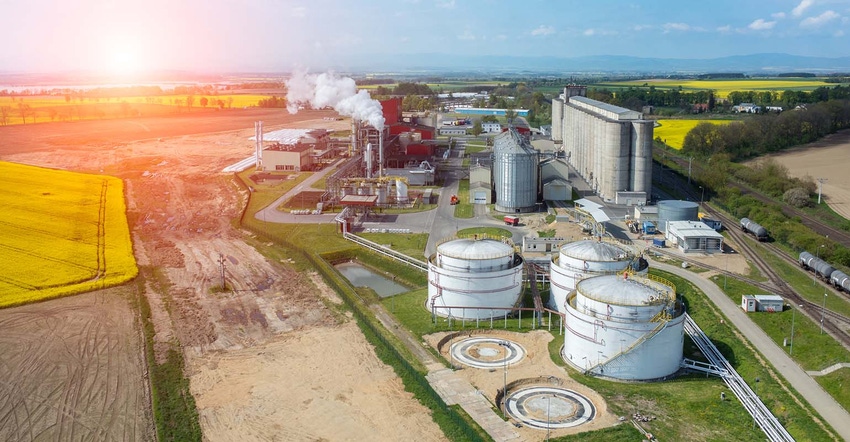
A recent decision by the U.S. Environmental Protection Agency (EPA) will be another brick in the wall pushing up corn prices. A U.S. Supreme Court Certiorari, or judicial review of a decision in a lower court, made the difference.
Here’s what happened
In late 2020 the Tenth Circuit of the U.S. Court of Appeals issued a decision in Renewable Fuels Association v. EPA which discussed exemptions for small refineries to use ethanol. The renewable fuels program (RFS) was created under the Energy Policy Act of 2005.
Remember, in those days the United States depended on foreign oil. The RFS program was created by Congress to reduce greenhouse gas emissions and generate more renewable fuels such as corn ethanol. Small oil refineries, less than 75,000 barrels per day, could transition into the program. These small refineries could receive an exemption to RFS if the refinery would suffer “…disproportionate economic hardship…”
During the calendar year of 2017, EPA began granting a sizeable number of petitions to small refineries. This meant, of course, these refineries did not have to buy ethanol made from corn. (We grew 14.5 billion bushels of corn in 2020 and 4.85 billion went into the ethanol industry.)
A Kansas Republican – U.S. Sen. Roger Marshall - insisted that the law required 15 billion gallons to be blended into fuel. This issue generated litigation which involved the biofuels industry, EPA and corn farmers.
In January 2020, the Tenth Circuit Court of Appeals vacated and remanded three EPA decisions that EPA had granted to small refineries. The Tenth Circuit told EPA that it could only grant a small refinery’s petition if the small refinery could demonstrate an “existing exemption.”
In the Court’s analysis, it claimed “…a small refinery which did not seek or receive an extension in prior years is ineligible for an extension, because at that point there is nothing to prolong, enlarge, or add to.”
Economic hardship?
The second hurdle declared by the Tenth Circuit said the small refinery must “demonstrate disproportionate economic hardship caused by RFS compliance.” The Court told EPA it had acted arbitrarily and capriciously from an earlier position regarding economic hardship. Then in January of this year the U.S. Supreme Court granted the small refineries a review of the Tenth Circuit’s decision.
EPA said, after the Supreme Court granted the request, that it now agrees with the Tenth Circuit’s reading of the Renewable Fuels Standard.
As might be expected, small refineries disagree with EPA and the corn farmers. In fact, the small refineries say their survival “…depends on the continued availability of small refinery hardship exemptions from the Renewable Fuel Standards program.” In fact, the small refineries indicate or claim the Tenth Circuit and the EPA decision “…threatens to impair this necessary safety valve…”
EPA’s decision is a win for corn and ethanol producers in the United States.
About E15
EPA is also issuing a proposed rule regarding E15 and labeling requirements. E15 is a gasoline-ethanol blend that contains up to 15% ethanol. Out of 168,000 U.S. retail fuel stations in the United States, about 1,800 U presently selling E15.
The legal fight will continue, and it will have an impact on corn prices. The Tenth Circuit has sided with the corn farmers and biofuel industry. The oil industry, on the other hand, claims exemptions are needed to keep fuel available and to keep small refineries afloat.
The corn farmers and the biofuel industry claim that the Tenth Circuit is correct. The oil industry disagrees. Either way, this legal decision will have an impact on corn prices. Watch what the Supreme Court says later this Spring! It may impact you.
The opinions of the author are not necessarily those of Farm Futures or Farm Progress.
Read more about:
EthanolAbout the Author(s)
You May Also Like




